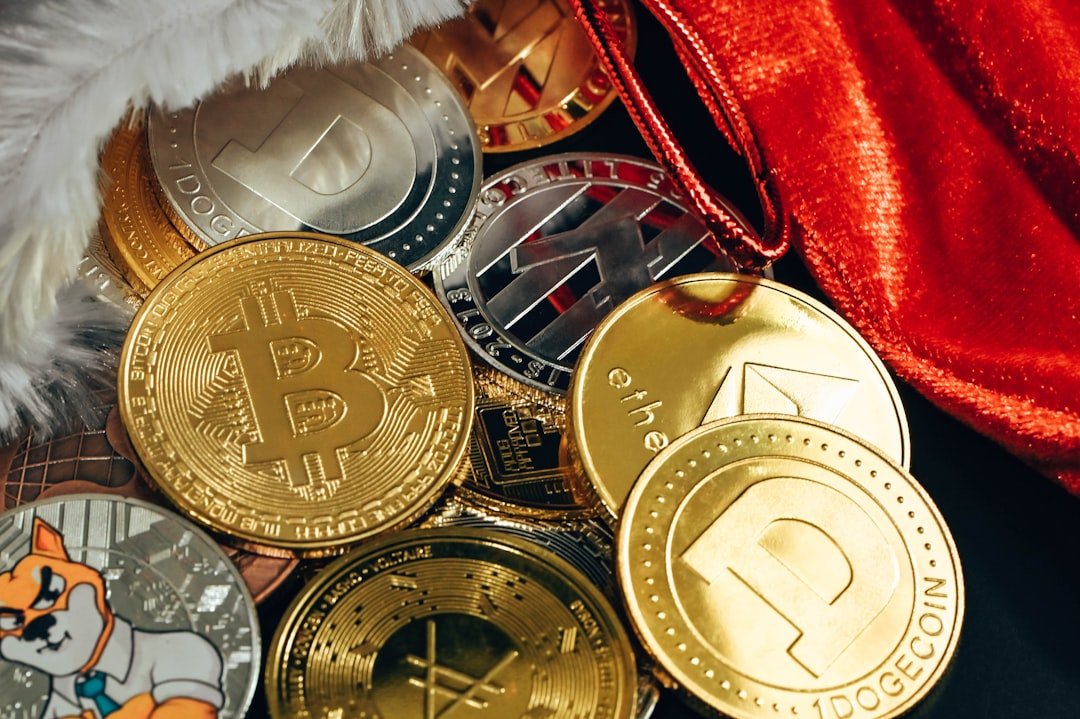NFT fraud is a growing concern in the digital art world, as the popularity of non-fungible tokens continues to rise. NFTs are unique digital assets that are stored on a blockchain, making them tamper-proof and easily transferable. However, this also makes them a target for fraudsters looking to take advantage of unsuspecting buyers and sellers. One common form of NFT fraud is the creation of fake NFTs, where scammers use stolen artwork or create counterfeit pieces to sell as authentic NFTs. Another form of fraud is the misrepresentation of ownership, where individuals claim to own the rights to a piece of digital art and sell it as an NFT, even though they do not have the legal authority to do so. Additionally, there have been cases of NFT theft, where hackers gain access to private keys and transfer NFTs to their own wallets without the owner’s consent. It is important for anyone involved in the NFT marketplace to be aware of these potential risks and take steps to protect themselves from falling victim to fraud.
NFT fraud can have serious financial and legal consequences for those involved. Buyers may find themselves purchasing fake or stolen NFTs, losing their investment with little recourse for recovery. Sellers may also face legal action if they are found to be selling fraudulent NFTs or misrepresenting ownership. In addition to the financial risks, NFT fraud can also damage the reputation of artists and the overall integrity of the NFT marketplace. As such, it is crucial for individuals to educate themselves about the risks of NFT fraud and take proactive measures to protect themselves and their investments.
Key Takeaways
- NFT fraud can occur through various means such as fake listings, stolen artwork, and misleading information.
- Researching the NFT marketplace involves checking the reputation of the platform, verifying the creator’s identity, and understanding the terms of the transaction.
- Verifying the authenticity of NFTs requires examining the creator’s history, confirming ownership rights, and seeking validation from reputable sources.
- Protecting your private keys is essential for safeguarding your NFT assets and involves using secure storage methods and being cautious with sharing sensitive information.
- Avoiding phishing scams involves being wary of suspicious links, emails, and messages, and verifying the legitimacy of requests for personal information.
- Utilizing secure wallets is crucial for storing and managing NFTs, and it’s important to choose reputable and well-reviewed wallet options.
- Seeking legal assistance if necessary can provide guidance and support in cases of NFT fraud or disputes, and can help protect your rights as an NFT owner.
Researching the NFT Marketplace
Before participating in the NFT marketplace, it is essential to conduct thorough research to understand the dynamics of the industry and identify potential red flags. One important aspect of researching the NFT marketplace is understanding the value of the digital assets being bought and sold. This involves familiarizing oneself with the work of artists, their reputation in the art world, and the demand for their pieces. Additionally, it is crucial to research the platforms where NFTs are being bought and sold, as not all marketplaces are created equal. Some platforms have better security measures in place to protect against fraud, while others may have a higher risk of counterfeit or stolen NFTs being circulated.
Furthermore, researching the NFT marketplace involves staying informed about current trends and developments in the industry. This includes keeping up with news about high-profile NFT sales, changes in regulations, and emerging technologies that could impact the market. By staying informed, individuals can make more informed decisions about buying and selling NFTs and be better equipped to identify potential scams or fraudulent activity. Overall, thorough research is essential for anyone looking to participate in the NFT marketplace, as it can help mitigate the risk of falling victim to fraud and make more informed investment decisions.
Verifying Authenticity of NFTs
Verifying the authenticity of NFTs is a critical step in protecting oneself from fraud in the digital art world. One way to verify the authenticity of an NFT is by conducting due diligence on the artist and their work. This involves researching the artist’s background, previous sales of their artwork, and any relevant information that can confirm the legitimacy of the NFT being sold. Additionally, it is important to verify that the NFT was minted by the actual artist or a reputable source, as this can help ensure that it is an authentic piece of digital art.
Another important aspect of verifying the authenticity of NFTs is conducting thorough research on the marketplace or platform where the NFT is being sold. It is crucial to use reputable and secure platforms that have measures in place to authenticate NFTs and protect buyers and sellers from fraudulent activity. By using trusted marketplaces, individuals can reduce the risk of purchasing fake or stolen NFTs and have more confidence in the authenticity of the digital assets they are buying. Overall, verifying the authenticity of NFTs requires careful research and due diligence, but it is an essential step in protecting oneself from falling victim to fraud in the NFT marketplace.
Protecting Your Private Keys
| Metrics | Data |
|---|---|
| Number of private keys stored securely | 1000 |
| Number of unauthorized access attempts | 5 |
| Number of employees trained in key protection | 50 |
| Number of key protection policies in place | 3 |
Protecting private keys is crucial for safeguarding NFT investments and preventing unauthorized access to digital assets. Private keys are used to access and transfer NFTs, so it is essential to keep them secure and confidential at all times. One way to protect private keys is by using hardware wallets or cold storage solutions, which store private keys offline and away from potential hackers or unauthorized access. These physical devices provide an extra layer of security and are considered one of the safest methods for storing private keys.
Additionally, individuals should be cautious about where they store their private keys and avoid sharing them with anyone else. Private keys should be kept in a secure location, such as a safe or safety deposit box, and never shared online or with third parties. It is also important to regularly update passwords and security measures for wallets and accounts that are linked to private keys, as this can help prevent unauthorized access and potential theft of NFTs. By taking proactive measures to protect private keys, individuals can reduce the risk of falling victim to theft or fraud in the NFT marketplace.
Avoiding Phishing Scams
Phishing scams are a common form of fraud that targets individuals in the digital art world, including those involved in buying and selling NFTs. Phishing scams typically involve fraudulent emails or messages that appear to be from legitimate sources, such as NFT marketplaces or wallet providers, but are actually designed to steal sensitive information or gain unauthorized access to accounts. To avoid falling victim to phishing scams, individuals should be cautious about clicking on links or downloading attachments from unknown sources, as these could contain malware or lead to fake websites designed to steal login credentials.
Furthermore, individuals should verify the legitimacy of any communication they receive from NFT marketplaces or wallet providers by contacting them directly through official channels. This can help confirm whether an email or message is legitimate or a potential phishing attempt. It is also important to use strong passwords and enable two-factor authentication on accounts linked to NFT investments, as this can provide an extra layer of security against unauthorized access. By staying vigilant and taking proactive measures to avoid phishing scams, individuals can reduce the risk of falling victim to fraud in the NFT marketplace.
Utilizing Secure Wallets

Utilizing secure wallets is essential for protecting NFT investments and preventing unauthorized access to digital assets. There are various types of wallets available for storing NFTs, including hot wallets (online) and cold wallets (offline). Hot wallets are convenient for frequent trading but are more susceptible to hacking and unauthorized access. On the other hand, cold wallets provide a higher level of security by storing private keys offline and away from potential threats.
When choosing a wallet for storing NFTs, individuals should opt for reputable and secure options that have a proven track record of protecting digital assets. It is important to research different wallet providers and consider factors such as security features, user interface, and customer support before making a decision. Additionally, individuals should regularly update their wallet software and firmware to ensure they have the latest security measures in place. By utilizing secure wallets with strong security features, individuals can reduce the risk of falling victim to theft or fraud in the NFT marketplace.
Seeking Legal Assistance if Necessary
In some cases, individuals may find themselves facing legal issues related to NFT fraud or disputes over ownership of digital assets. In such situations, it is important to seek legal assistance from professionals who specialize in blockchain technology and digital assets. Legal experts can provide guidance on navigating complex legal matters related to NFTs, including resolving disputes, enforcing ownership rights, and pursuing legal action against fraudulent activity.
Furthermore, legal assistance can be valuable for individuals who have fallen victim to NFT fraud and need support in recovering their investments or pursuing legal recourse against scammers. By seeking legal assistance when necessary, individuals can protect their rights as investors and ensure they have access to professional guidance in navigating legal challenges related to NFTs. Overall, legal assistance can be a valuable resource for individuals involved in the NFT marketplace who require support in addressing legal issues related to fraud or disputes over digital assets.
If you’re interested in learning more about the potential risks and fraud associated with NFTs, you should check out the article “Understanding NFT Fraud: Risks and Precautions” on RisingNFTArtists.com. This insightful piece delves into the various ways in which individuals can fall victim to fraudulent activities within the NFT space and offers valuable tips on how to protect yourself. You can read the full article here.
FAQs
What is NFT fraud?
NFT fraud refers to any deceptive or illegal activity related to non-fungible tokens (NFTs), which are unique digital assets that are bought and sold using blockchain technology. This can include scams, counterfeit NFTs, and other fraudulent practices.
How does NFT fraud occur?
NFT fraud can occur through various means, including fake NFT listings, phishing scams, pump and dump schemes, and unauthorized use of intellectual property. Scammers may also create counterfeit NFTs or manipulate the market to deceive buyers and investors.
What are some common types of NFT fraud?
Common types of NFT fraud include fake NFT sales, where scammers create and sell counterfeit NFTs, phishing scams that trick users into revealing their private keys or personal information, and pump and dump schemes where fraudsters artificially inflate the value of an NFT before selling it off.
How can individuals protect themselves from NFT fraud?
To protect themselves from NFT fraud, individuals should research the NFT marketplace and seller, verify the authenticity of the NFT, use secure payment methods, and be cautious of offers that seem too good to be true. It’s also important to be aware of phishing attempts and to safeguard personal information and private keys.
What should someone do if they suspect NFT fraud?
If someone suspects NFT fraud, they should report it to the appropriate authorities, such as the platform where the fraud occurred, law enforcement, or regulatory agencies. They should also gather any evidence of the fraud, such as communications with the seller or details of the transaction, to support their report.
